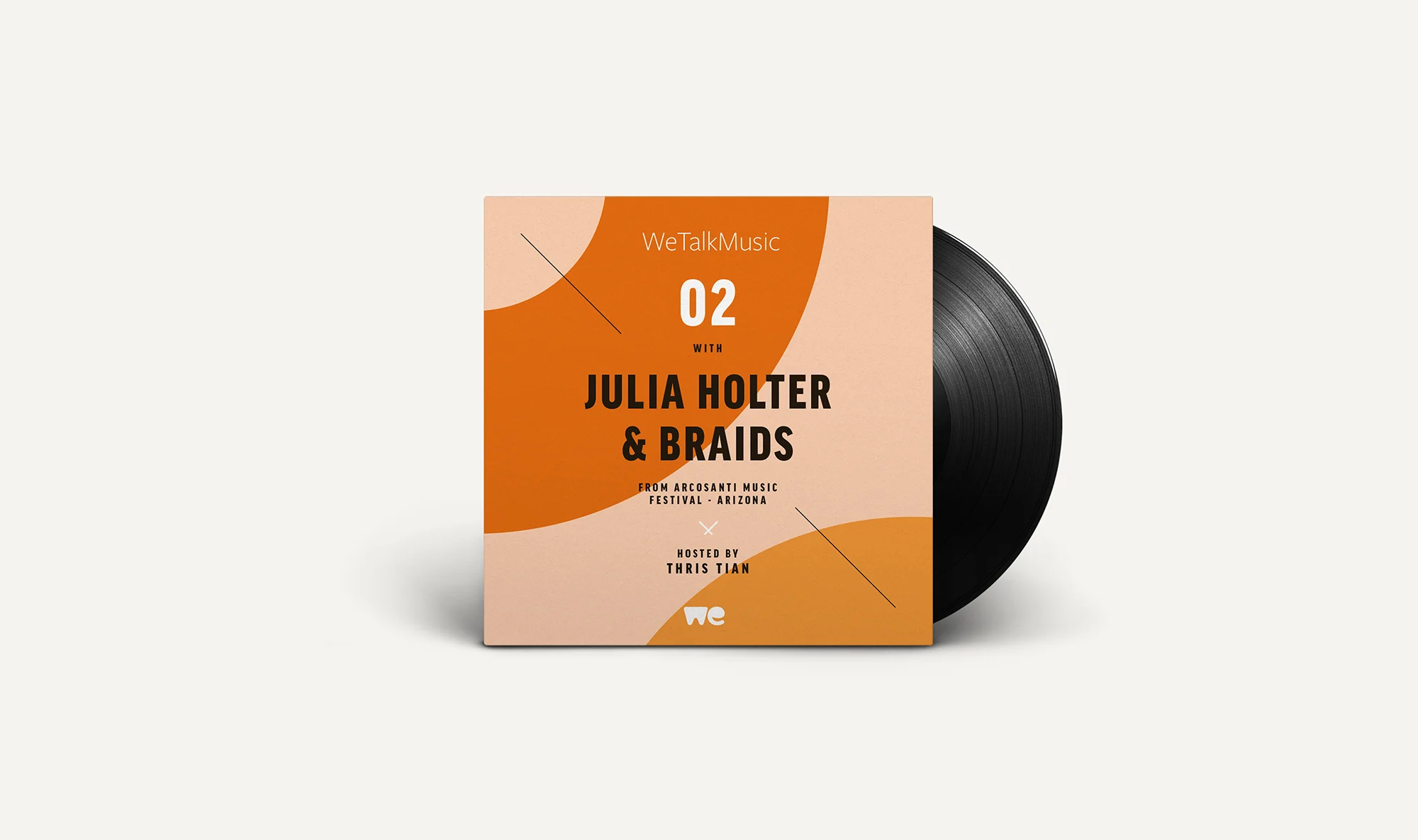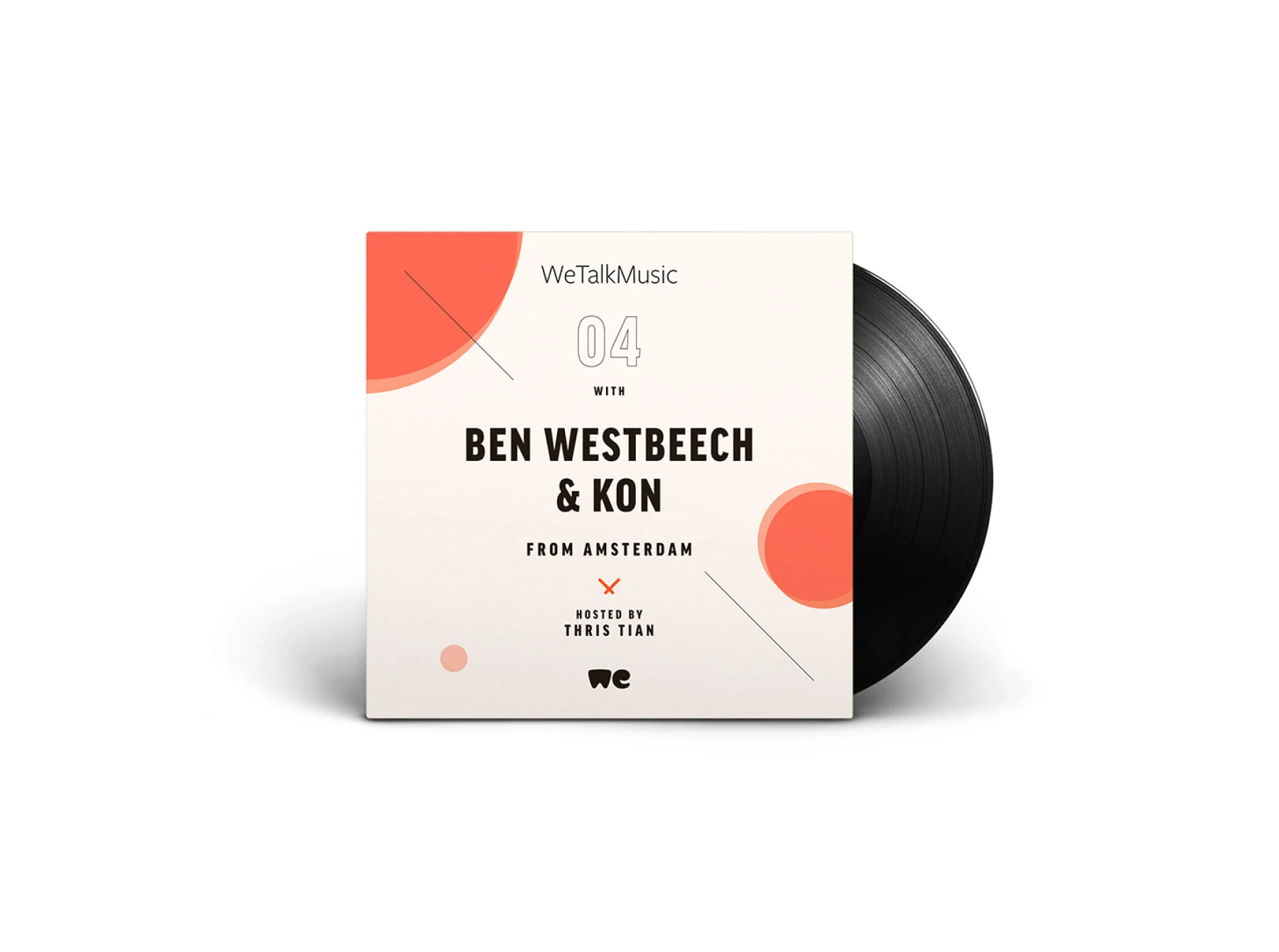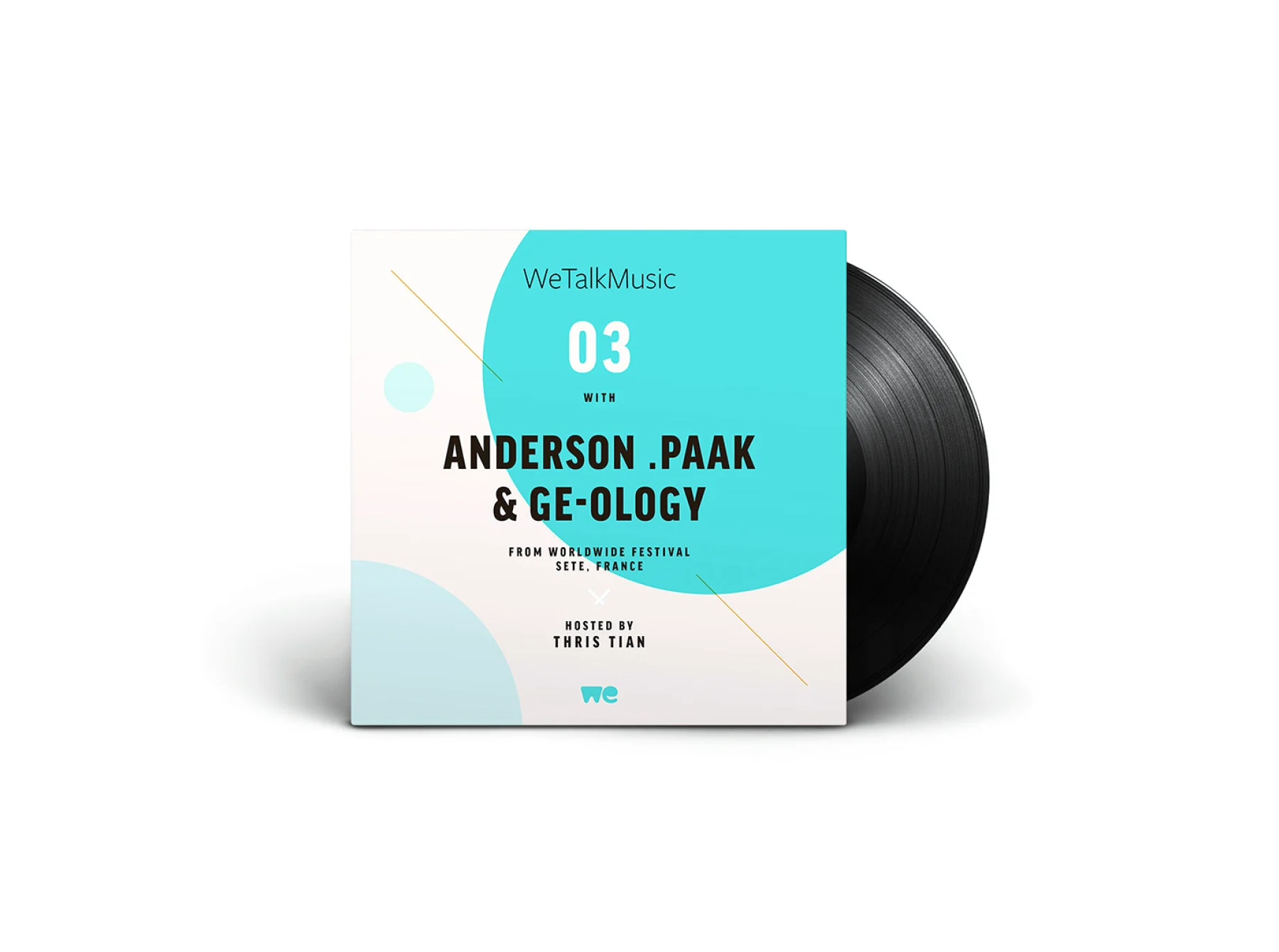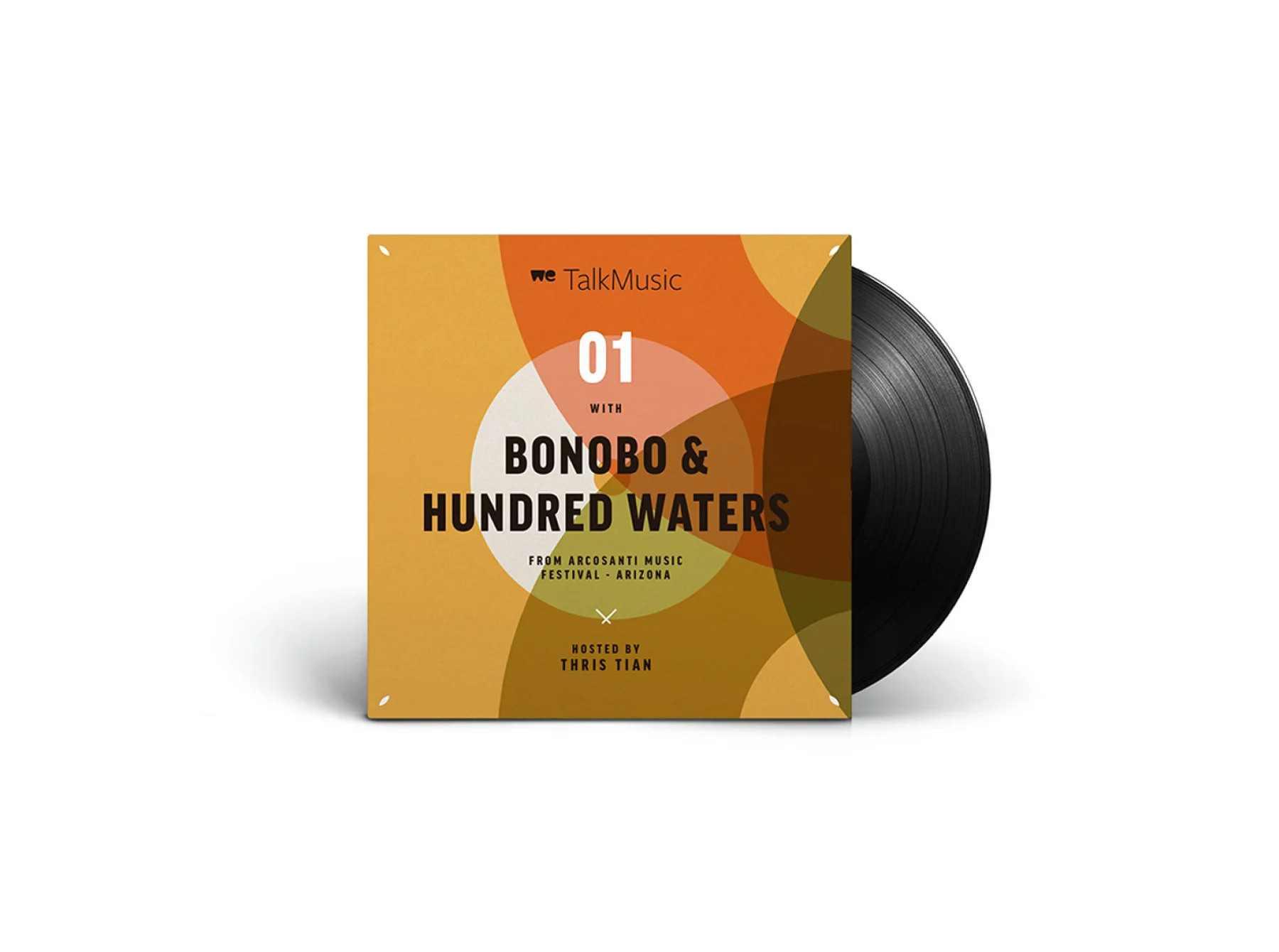

The third and final day of Hundred Waters’ music festival Form Arcosanti was already in full swing when Julia Holter and Braids’ Raphaelle Standell-Preston sat down with Thris Tian for another edition of WeTalkMusic.
The two insta-bonded over a shared reverence for Joni Mitchell and swapped tales about playing unorthodox venues in the Midwest while they shared tracks which first inspired them to become musicians and some of the songs that have surprised them.
WeTalkMusic explores artists' different sides through some unexpected musical selections. Explore the whole series here.
Julia Holter is as much a storyteller as she is a critically-acclaimed musician. Whether she’s writing songs based on a Greek tragedy or a French novella, her atmospheric, oblique brand of experimental pop conveys a distinct reverence for iconic tales. Her most recent work, Have You In My Wilderness, turns her narrative lens on herself to create a disarmingly personal collection of radiant ballads that act like short stories of her own experience with love, trust and power.
Having been best friends since they were teenagers, Raphaelle Standell-Preston, Austin Tufts and Taylor Smith of Braids consistently balance formidable musical and vocal acumen with a vulnerability that comes across loud and clear as the band’s not-so-secret weapon.The Montreal-based band’s intensely emotional music is powerful yet fragile, and deeply human; a combination that captivates audiences around the world, who open themselves up to Braids’ commanding message, delivered via a deceptively delicate sound.

Here are a few key quotes from our guests gleaned from the second episode…
Raphaelle on the beauty of sadness in music:
“I used to revel in it a little bit more as a younger lady. Now, in knowing that it does pass, accepting it helps it go away quicker. Trying to understand it, but not to such a degree where you analyze every bit of it. Sometimes you just need a song to cry to. Sometimes crying puts things back in perspective. ”
Raphaelle on an unusual gig in Detroit:
“We played in an old converted tire factory, we just had a big show with the record label we’re on, Arbutus. It lasted all night and it was so cool; it was really contained and there was no security and the police didn’t bother us. It went until 10am and there was a bonfire. If you did that in other city, they would be there in a heartbeat.
Raphaelle on the influence of Bjork and her album Vespertine…
Bjork was a a super, super solidifying force for me being like, “Oh my God, how does she sing; I need to learn it.”… I worked in Calgary at a cafe called Beano after graduating high school and I had the really early morning shift doing baking. I was there at like 4am and would blast that whole record and try to sing like her while I was making muffins.
Julia on having her eyes opened by Miles Davis’ Live Evil and Joni Mitchell’s Court and Spark…
The way that they play with beats and drums and effects and all this stuff, and it’s very free. It doesn’t feel like coming from some kind of a clear tradition…It just opened me up to the idea of playing with sound, I guess, as a young person.
Julia on thinking she wanted to write music for other people…
I went to this high school in LA that was really great. It was a public school but it had a music academy within it that was especially focussed on musical theatre and jazz. I was introverted, a piano major, but it was definitely a place I started learning music theory…I didn’t think of myself as a performer at that point.
Julia on the beguiling charms of Bulgarian choir music…
There’s something mysterious about it. It’s accessing some kind of higher place whether or not you’re in touch with what that place is specifically, it reminds you of the presence of your soul and the power of your soul.




